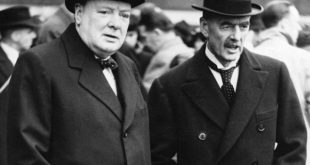The British general election on 8 June was meant to be The Brexit Election that would provide incumbent Prime Minister Theresa May with the strong and stable majority with which to go into battle against the EU 27.
It didn’t turn out that way though. A strong Labour campaign worked time and again to pull the focus away from the looming Brexit negotiations and onto domestic issues like the stealth privatisation of the NHS – an issue that gained more prominence when it turned out that one of the government’s efficiency savings turned out to be not updating the NHS anti-virus software. Events dogged the Prime Minister’s campaign. Two terrorist attacks – Manchester and London – during the campaign threw the spotlight on policing cuts made by Mrs May when she was Home Secretary. These were not helped by the manifesto that Mrs May’s “team” appear to have scribbled onto a sheet of A4 paper on the way to the launch. Un-costed, unseen even by senior ministers, and containing policies like the “dementia tax,” the manifesto was so bad that conspiracy theorists began to wonder if the Tories were deliberately trying to lose the election.
Instead of the 100-150 seat majority and 20-25 point lead over the Labour opposition, Mrs May managed to lose 17 seats and end up just two points ahead. The result is a minority government propped up by the votes of the 10 Ulster Unionist MPs.
What about Brexit?
It turns out that Brexit may have played a role in the election after all… just not in the way the government expected. Certainly Britain’s young voters turned out in large numbers in areas where the Remain vote was strongest in the 2016 EU referendum. However, this alone does not explain the dramatic swing to Labour seen during the six-week campaign. The collapse of the UKIP vote seems to have been decisive in securing additional seats for Labour and for preventing the Tories from picking up its targeted working class seats.
It is likely that the switch back from UKIP/Leave to Labour was prompted by the very real impact of Brexit that is already being felt in the lives of ordinary British people. As Peter S. Goodman at the New York Times observes:
“In the year since Britain’s shocking vote to abandon the European Union, the British pound has surrendered 13 percent of its value against the euro, raising the cost of cherished European vacations. Food from other lands — meat, cheese, wine — is more expensive, too. So is gasoline.
“Accelerating inflation may help explain the stunning electoral rebuke of Prime Minister Theresa May and her governing Conservative Party as well as the unexpected strengthening of the Labour Party in Thursday’s parliamentary elections. Consumers are grappling with rising prices, and wages have not kept pace. The economy is weakening.”
It is not that these economic factors translate directly into election results. Rather, we should view the economy as the stage on which the theatre of electioneering is played out. A booming economy favours the sitting (business as usual) government, as voters are reluctant to risk their good fortune. But – as David Cameron and Hillary Clinton demonstrated previously – if you are the business as usual candidate when the economy is slumping and people require change, you risk an uphill battle against any kind of anti-establishment opponent.
In the immediate aftermath of the EU referendum a year ago, the economic consequences were largely theoretical – futures contracts and competition between supermarkets helped keep prices down despite the fall in the Pound. But those dampening forces have disappeared. Shoppers are all too aware that the price of food, fuel and travel are increasing faster than wages. They are also increasingly aware that this is only a taster for what is to come in the event that the UK cannot secure a Brexit agreement with the EU 27. In such circumstances, running a campaign that promised a hard Brexit and even more austerity was never going to work.




